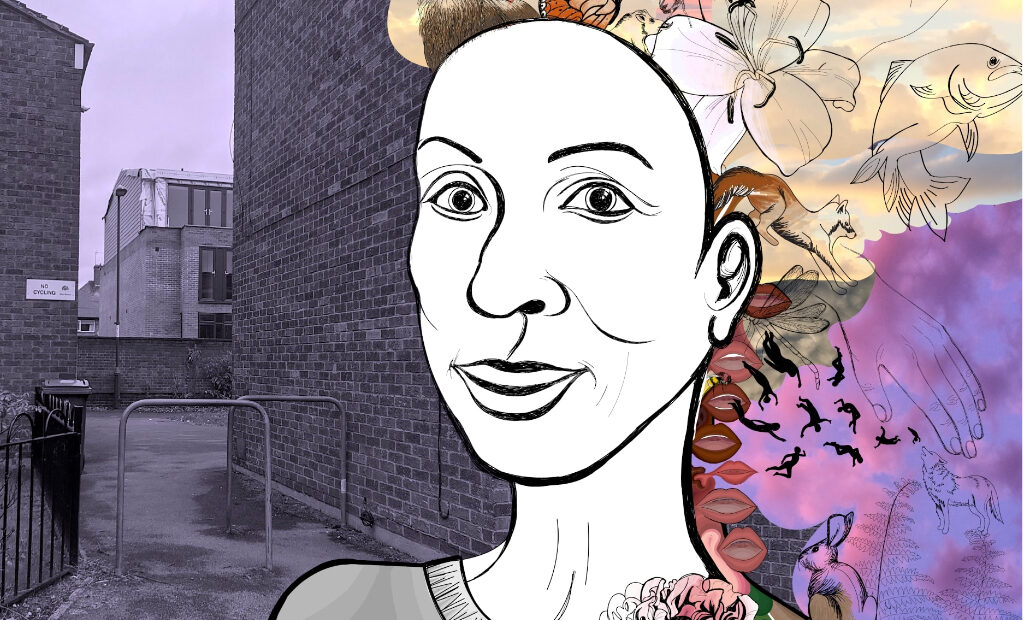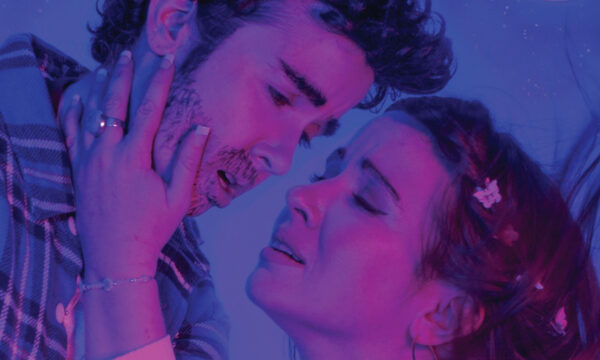We Ask These Questions of Everybody: An interview with Amble Skuse and Toria Banks

We Ask These Questions of Everybody is the new operatic production by HERA that will soon reach online audiences. It is set to be an engaging interactive experience introducing important conversations that deserve greater exposure. The performance focuses on the experiences of disabled people and draws attention to the effects on their lives of years of austerity in the UK. It gives insight into a range of perspectives by combining real-life conversations, song and interactive software. The production is also enriched by soundscapes and features a strong ensemble of cross-genre performers, all of whom are disabled.
We caught up with writer/director Toria Banks and composer Amble Skuse to find out how this work came about and discuss, among other things, the great advantages of online theatre, the discrimination exposed by the pandemic, and the importance of shaking up preconceptions about disabilities.
What was your aim when you decided to create We Ask These Questions of Everybody?
Toria Banks: I think I have two answers. On a personal level, this is a subject I’ve been really wanting to make work about. I’ve been in theatre and opera a long time, and disabled for a long time, and yet I’ve never made work about disability before. So making this piece for me is partly about a process of bringing the parts of my life together. But it’s also that I love how Amble’s way of making music is about a quality of listening – in the same way that people say that drawing is really a way of looking. It illuminates the beauty and subtlety that’s already there in the way people speak, and I think it’s very needed, so I wanted to help.
Amble Skuse: I didn’t really have an aim, apart from wanting to share the interviews further: I wasn’t focussed on the end result. I had written a smaller piece with them, but I felt there was much more I could do with them, so I was looking for an opportunity to explore what voices we listen to, and opera seemed like a really interesting medium to explore that. What voices are valued, and why?
You both have extensive experience in storytelling through a range of different mediums. How did you decide which method would be the most effective for this project?
AS: I guess it’s a combination of both our techniques, I tend to use soundscapes and other people’s voices. I try to create a platform for other voices to come through. Toria is very strong on narrative and structure so was drawn to the story of Hannah and the interaction between the two people.
TB: It feels like it emerged gradually, looking for shapes in the material.
You mention that there are advantages to online performances. Will you consider producing more distanced projects, even when physical gatherings will be allowed? Is digital theatre something that can work?
AS: Absolutely yes. The idea that we would put it on in a theatre and only people who could make it to the theatre at a given time and sit through an hour of it could see it seemed completely wrong for the very people that we’re talking about. It’s like, we don’t want our show about disability to not be accessible to the people who’ve helped us make it. That’s daft. So we’d already thought we’d love it to be online, and we’d like some interaction. It sort of really worked for us in a weird way because that makes more sense: people don’t have to come to a venue and sit in the dark, they can sit in their bed and listen to it.
TB: Online isn’t the opposite of “real life”. I love theatre, but all sorts of things are possible at a distance, and I’m less bothered about what to call them than I am about what they can do.
How did you come together as a group, in spite of the physical distance? How do you build a team spirit from afar?
AS: I think we always knew we would work remotely so it’s maybe not something that bothered us as much as it might bother other people. I do most things from home and had already conducted all the interviews from home. In fact Toria and I have never met, apart from online! So we knew we’d be doing things remotely. In terms of team spirit we’re just trying to ensure that everyone is okay, making jokes, making sure people take breaks, and trying to keep the pressure levels low.
TB: That and discussing everything openly that the work brings up, and then also discussing what we’re having for dinner. Both are important.
What was the research process like? What challenges did you encounter when gathering all the material and putting everything together?
AS: It was totally joyful to be honest. I had been living alone and really struggling with managing my work/disabled balance. Through reaching out on social media for people to interview I met a group of the most amazing people. Just someone giving you an hour of their time, and discussing the issues that were affecting me was so helpful and fascinating. It gave me a completely different perspective and so much food for thought. It was nourishing. It was a revelation to find people talking about this stuff, as I just hadn’t come across it in a mainstream setting.
TB: Working out what to leave out from the interviews was sometimes hard. They’re an amazing resource.
How do you expect audiences to react? What would be the ideal outcome?
AS: I guess I’d like people to feel that they’d heard some perspectives they’d never heard before. To maybe assess their own ideas around what it means to be human; why we draw lines between different bodies, and why we value some bodies over other bodies.
TB: I don’t think there’s one ideal outcome, because I hope lots of different people experience it. I hope whoever’s listening feels something of the way we’ve tried to balance joy and pain, to include both. And I hope people see themselves in it, disabled or not.
What’s the real-life experience of a disabled person? What do non-disabled people tend to overlook or misunderstand?
AS: Well, I mean there are so many ways of being disabled and different disabled people that it’s probably impossible to answer that question! That’s probably what is overlooked. We’re just people living our lives. I guess mainly understanding that the way “things are done” is often arbitrary and not useful, and we could just do it all differently.
TB: I think people underestimate the cumulative impact of small instances of ableism, and of constantly facing little, unnecessary barriers. And I think they overlook the depth of thought in disabled activism and disabled theory – there’s so much that’s come from that work, especially in the UK.
What are some concrete steps that the government can take to facilitate the integration of marginalised groups? And how can citizens contribute and do their part, as individuals?
AS: I’m not sure that for me it’s about integration. For me it’s about recognising the value of different people’s stories and life experiences. We see disability as something negative, but really there is so much knowledge and expertise in our community. So for me it’s less about integrating and more about respecting and listening. We need to challenge the way we think about being disabled, and question what value we put on people’s lives.
TB: There’s lots the government could do to make people’s lives better, if that’s what they wanted. I don’t think they’re waiting on us for practical suggestions. Most exclusion is about resources: giving people what they need to flourish. But while disabled people are seen by government as inconvenient and expensive, their lives will always hang in the balance. I really think everyone would be happier if we could stop trying to find ways of measuring people’s relative worth, and agree that everyone deserves a decent life.
Do you think the pandemic has sensitised the general public to the challenges faced by disabled people?
AS: Well, sort of. It’s been really interesting because we’ve seen the general public suddenly having to live like we do. So there was this initial idea that those conversations would be productive. But I think then what happened was that non-disabled people didn’t recognise that our community were experts in living in small universes, we were still excluded from those conversations. There have been some positive side effects in that things are more available digitally, which of course is wonderful. I hope that those people who have been fighting to work from home are going to see more options in the future. Perhaps we’re learning that producing good work, and being in a building 9-5 are not the same thing. On the other hand, we can see that the general public are very keen to get back to “normal”, so I’m not sure that lessons around adaptability, loneliness, mental health and community support are something that will carry forwards. We also saw the response that it was “only” those with preexisting conditions who were at risk, and some people being fine with that as a risk factor… so… We’ll see!
What can the arts do for a community? Why is it important to support this sector at this time?
AS: I’m not sure it’s about the arts doing something “for” a community. For me it’s about ensuring that disabled people are in positions of leadership, making their own work, being supported to do that, having support to go through the education system, to get the training and opportunities they need in a way that allows them to thrive. If we’re making systems that don’t allow disabled artists through, then we’re making them wrong. We need to reassess how we organise our processes and projects to ensure that disabled people are thriving and their contributions valued.
TB: I would maybe add that art is one of the ways in which “community” happens – if we don’t just use the word as a euphemism for marginalised demographics but to describe how we live together and find connection. Art should aspire to community.
Mersa Auda
For further information about HERA and We Ask These Questions of Everybody visit here.
Read our review of We Ask These Questions of Everybody here.

























Facebook
Twitter
Instagram
YouTube
RSS